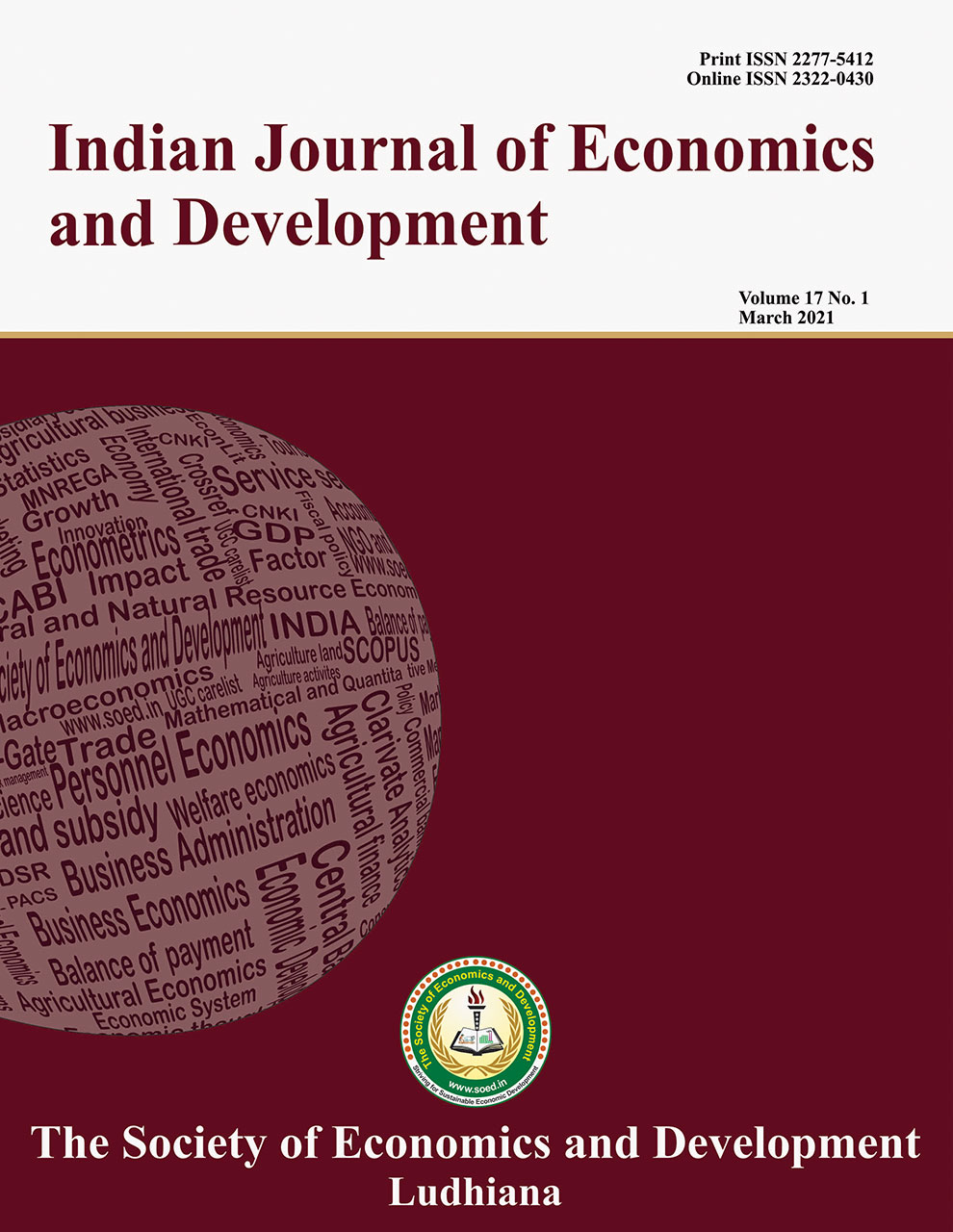Economic Assessment of ICAR-NRCSS Coriander Variety (ACr-1) using Economic Surplus Model

Price: ₹ 500
Author: Murlidhar Meena, Rekha Rani , G. Lal , R.S. Meena and N.K. Meena
Author Address: Scientist, Director, and Senior Scientist ICAR-National Research Centre on Seed Spices Ajmer-305206 (Rajasthan) and Scientist, ICAR-Central Institute for Arid Horticulture, Bikaner-334006 (Rajasthan)
Keywords: Economic impact, economic surplus model, social benefits
JEL Codes: Q16, Q54, Q55
Abstract
Coriander, the major seed spice is grown in the Rajasthan, suffers from various fungal diseases, of which the stem gall is the most destructive and versatile disease causing up to 50 percent yield loss. ICAR-NRCSS Ajmer released a stem gall resistant variety named Ajmer Coriander-1 (ACr-1). Economic Surplus Model was used to examine the economic impact of ACr-1 in Rajasthan. The study found that the ACr-1 generated net social benefit 11418.60 million with 15 percent adoption of the variety during six years (2013-14 to 2018-19). The gall resistant variety (ACr-1) released by ICAR-NRCSS has earned positive social impact, and net returns to the coriander farmers can be further increased with wider adoption of this variety in the coriander growing area of the country.
Description
Indian Journal of Economics and Development
Volume 17 No. 3, 2021, 653-658
DOI: https://doi.org/10.35716/IJED/20306
Indexed in Clarivate Analytics (ESCI) of WoS
Scopus: Title Accepted
NAAS Score: 5.15



